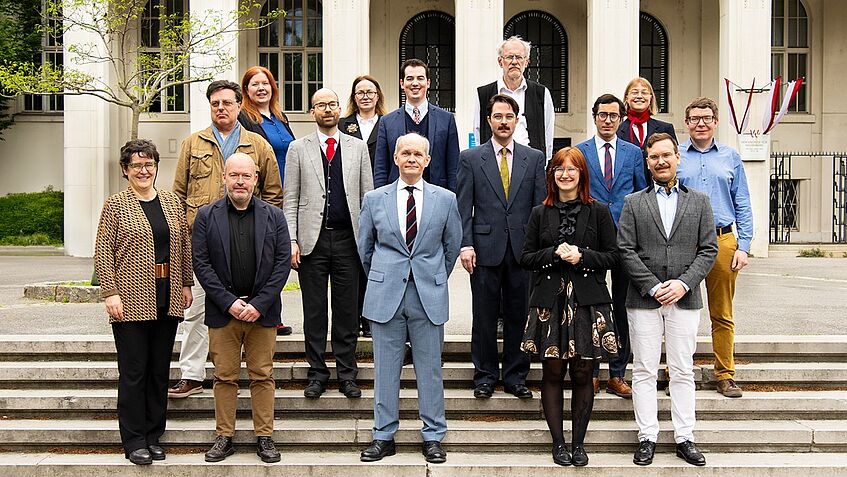Department of Numismatics and Monetary History

1st row: Petra Vonmetz, Roberto Tomassoni, Bernhard Woytek, Emilie Hager, Sven Martzinek
2nd row: Wolfgang Fischer-Bossert, Helmut Lotz, Giuseppe Castellano, Ehsan Shavarebi, Markus Greif
3rd row: Katharina Huber, Lilia Dergaciova, Max Resch, Hubert Emmerig, Maya Lerner
The Department of Numismatics and Monetary History
- ... is the only autonomous university department for Numismatics in Europe.
- ... focusses on coins and medals of all times, from antiquity to recent times.
- ... offers around 30 hours of numismatic teaching per week, for bachelor students in three extension curricula, in our master's degree and in the PhD level.
- ... owns a coin collection of 30.000 objects, which are used for research and in our classes.
- ... houses a card file of 1.5 million cards, containing pictures of coins and medals from all regions and eras.
- ... is home of a extensive numismatic library.
- ... collects auction catalogs from national and international coin dealers - an important ressource for numismatic research.
- ... regularly offers summer seminars for international students.
